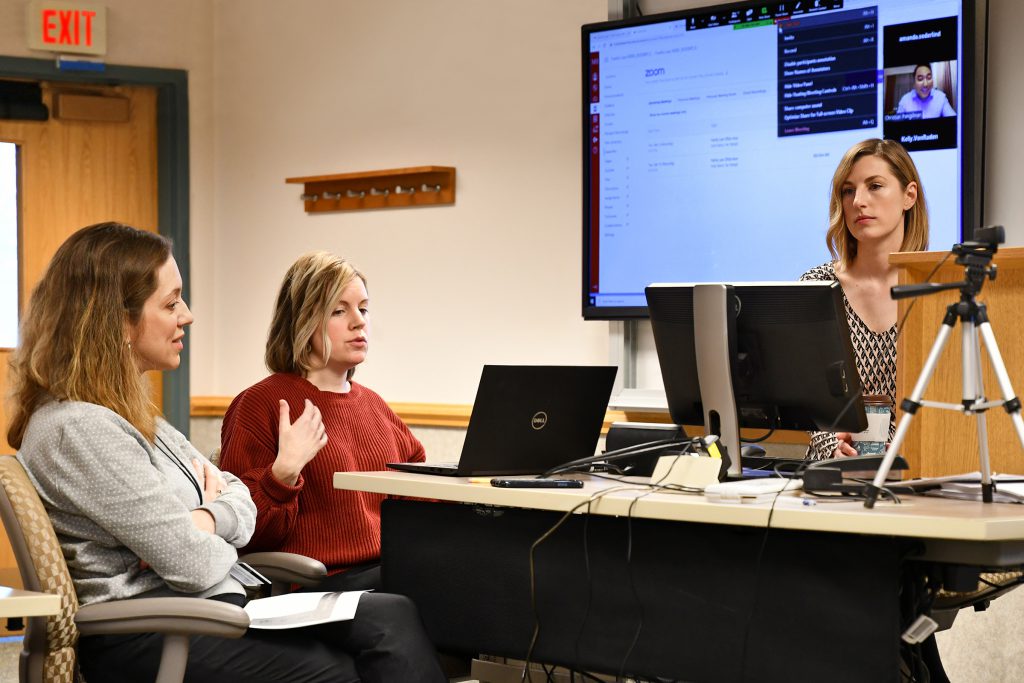COVID-19 has been the Big Disrupter, derailing travel, stock markets and health care infrastructures. Even sporting events and concerts have been impacted.
Education is hardly immune.
However, that sector — particularly when it comes to higher education — has one big advantage. Students no longer have to physically go to the classroom thanks to today’s technology.
They can go online.
And a number of law schools — both here and in China — are turning to a U.S. law school that’s long been a leader in online learning, Mitchell Hamline School of Law in St. Paul, Minn. It started the nation’s first hybrid online J.D. program, for instance, and continues to innovate.
“The basic idea is we’re sharing expertise we’ve built in the last 5 years about best practices, technological tools, assessments, course design, etc. with schools without much or any experience delivering online instruction who now suddenly are having to teach remotely,” said Doug Belden, the school’s assistant director of maketing.
Schools are switching to online to help thwart the spread of the virus. Those affected may not show symptoms initially and unknowingly pass it along.
New York Law School, for one, closed its school after a student came in contact with a New Rochelle attorney who had the virus. The student under went self-quarantine, and the school took pro-active actions, such as cleaning and disinfecting the campus.
Mitchell Hamline has already given advice to Peking University School of Transnational Law in Shenzen, China, which had reached out to the school earlier.
Amanda Soderlind, senior instructional designer at Mitchell Hamline, along with Blended Learning Director Kelly von Ruden and professor Leanne Fuith ’10, conducted a remote training session via Zoom for faculty and administrators of the Chinese school.
The Chinese school requested the training when restrictions due to coronavirus forced their students to remain at home. The virus started in China and spread dramatically fast.
Soderlind, Von Ruden, and Fuith presented information and fielded questions about everything from the capabilities and uses of various technical tools to the pedagogical aspects of teaching online versus in person.
School of Transnational Law Dean Phil McConnaughay said the presentation “will prove instrumental in our efforts to transition next week to an entirely online program of instruction, likely to last at least several weeks because of COVID-19.”
“I think that what we are seeing in China is unprecedented — millions of students at all levels, from primary school students to PhD students, will study or are studying online nationwide,” said Christian Pangilinan, assistant dean of academic affairs at the School of Transnational Law. “Because the adoption of remote learning is occurring so rapidly, the opportunity to learn from Mitchell Hamline’s expertise in blended and online learning was invaluable to helping us maintain the quality of our education.”


